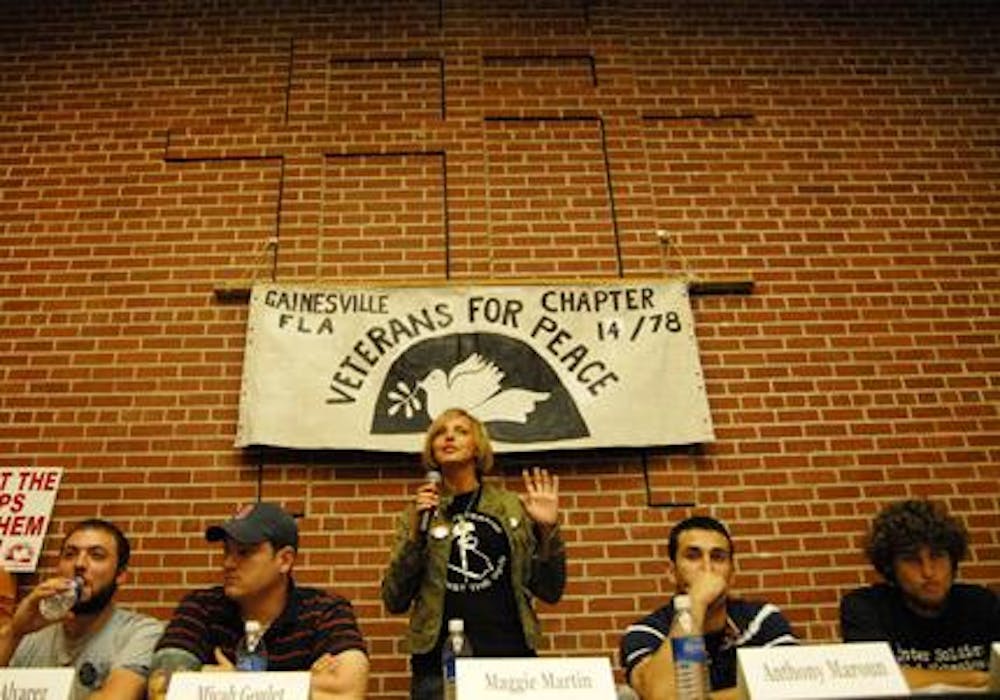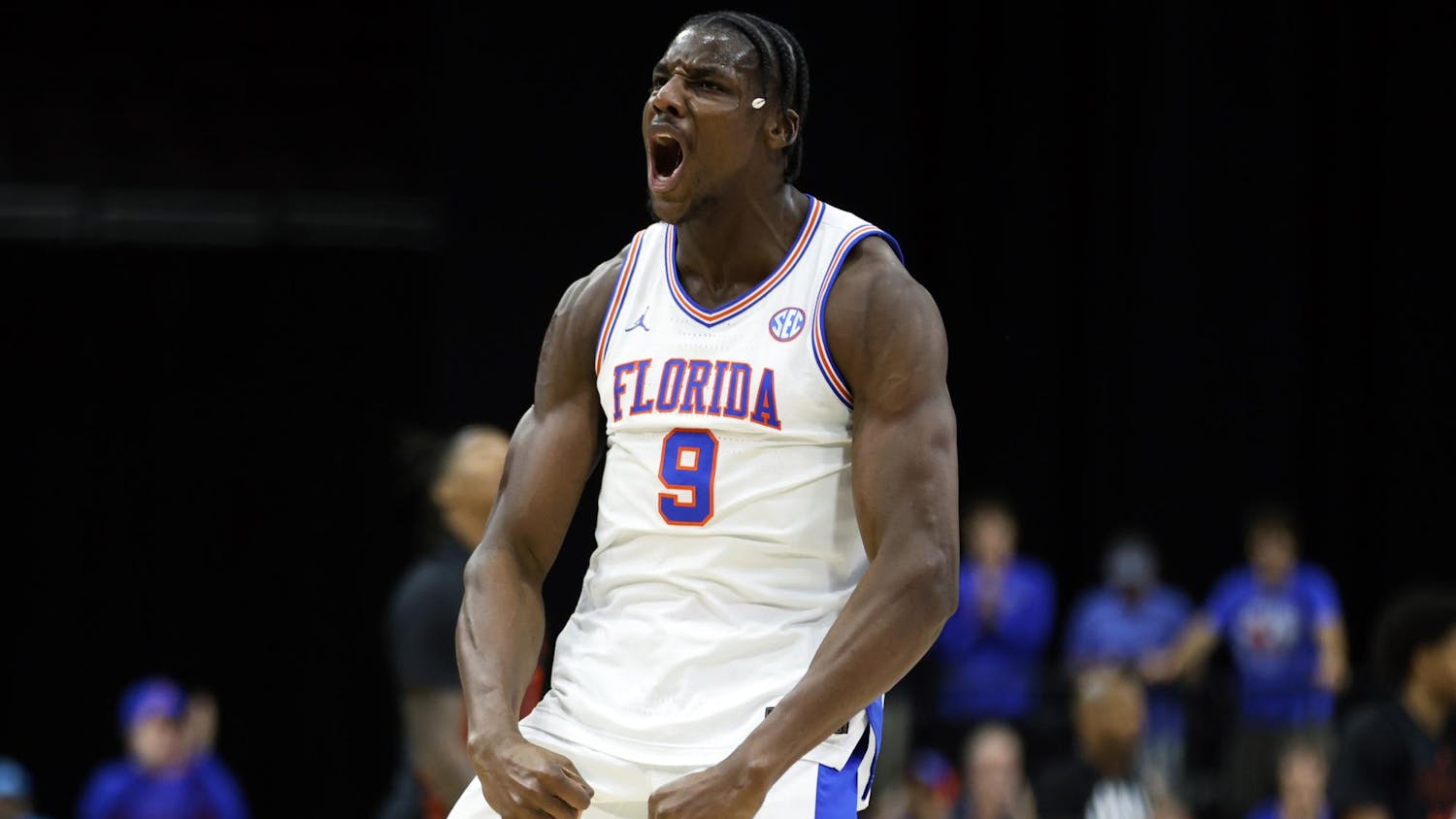Just a few years back, Clifton Hicks was an M1 Abrams tank operator almost 7,000 miles away in Iraq. As an active Army squad member, he'd seen buildings packed with families crumbled and burned. Watched women and children bleed and die. Killed insurgents and civilians alike.
Now 23 years old and back living stateside, Hicks attests that he is a changed man - yet the regret, he said, still remains.
Hicks' stories, along with the testimonies of five other Iraq war veterans, were shared Tuesday night with a group of almost 200 people who attended the local "Winter Soldier, Iraq at UF" event at the Presbyterian and Disciples of Christ Student Center across from the UF campus.
The event coincided with Tuesday's U.S. Senate interviews of head commander Gen. David Petraeus, who recommended that consideration of new American troops withdrawals from Iraq be delayed.
The Gainesville panel, organized by the Iraq Veterans Against the War, Gainesville Veterans for Peace, and a few student groups, was inspired by the Vietnam War-era protest of the same name. Last month, Iraq Veterans Against the War organized a similar national protest just outside of Washington, D.C., that drew several hundred U.S. veterans and allowed them to share their own horrors of the Iraq war in hopes of bringing an end to the fighting.
Many of the stories Tuesday night were harrowing and gruesome. Hicks told of a unit firing wantonly into a wedding party. Former Marine Jorge Alvarez told of civilian casualties and suicide bombers. Zollie Goodman, a former aircraft carrier worker, described the smell of burning flesh and the sight of dead bodies left to rot in the street.
"When you're in Iraq," said former infantryman Micah Goulet, "it's almost like you're in another world. You think very carnally. Brutally."
Yet the veterans agreed that they hadn't come to gross out listeners or to point fingers at wrongdoers. Their mission now, they said, was to get their military compatriots home.
"We're here because we care about the guys that are still over there," Hicks said. "We're here because we want to bring them home."
But even outside of the battlefield, the veterans said, the dangers to the troops remain.
Hicks spoke of soldiers both in Iraq and back in America beginning to use ecstasy, heroin and prescription drugs to pass the time and block out bad memories. Goodman spoke of the "broken, underfunded and understaffed" Veterans Affairs hospitals that reportedly prescribed unregulated treatments and overlooked soldier suicides. Maggie Martin, a five-year sergeant in the Army and the panel's only woman, told of the military's lack of concern for troops' families and personal relationships.
"They just think soldiers' families are a burden to the mission," she said. "But this is their lives."
"I am more proud to be in this fight," she continued, as members of the audience began to clap, "than anything I did in the Army."






